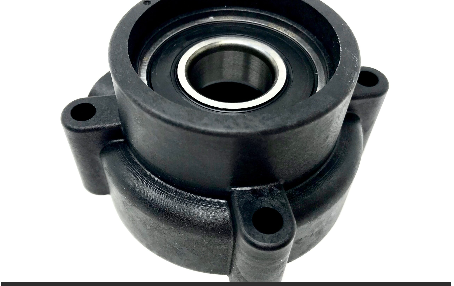 Add My Company
Add My Company

The pressure is always on to create parts that are stronger, lighter and more cost-effective.
Insert moulding at BEC typically combines metal and plastic in a single manufacturing process, producing components that are quite literally stronger than the sum of their parts.
From medical tools to car parts, this method creates robust products while cutting production time and costs.
Understanding how this process works – and why it matters – helps explain why more manufacturers choose it for complex components.
Here, we’ll explain insert moulding, how it works, and the advantages it can lend to your project.
Understanding the Insert Moulding Process
Metal and plastic each offer distinct benefits in manufacturing but joining them usually requires complex assembly.
Insert moulding takes a different path. Metal parts – such as threads or electronic components – are placed inside a mould tool before the plastic flows in, and around the component.
Once cooled, the single finished part emerges ready to use – no extra assembly needed.
Insert Moulding’s Applications Across Industries
Insert moulding serves critical functions across many sectors, delivering the perfect blend of strength and usability in:
Medical Devices: Surgical instruments combining metal precision with ergonomic plastic grips, dental tools, and diagnostic equipment
Automotive Components: Dashboard controls, engine parts, gear systems, and electrical connectors
Consumer Electronics: Phone casings with embedded metal components, computer parts, and device housings requiring structural integrity
Home Appliances: Kitchen equipment, white goods components, and bathroom fixtures that need water-tight seals
Aerospace: Lightweight yet strong components for interior fittings and control systems
Key Benefits of Insert Moulding
Insert moulding is an established manufacturing technique, but why? Because of several distinct advantages over other manufacturing methods:
Strength: Plastic encapsulates a metal insert, creating exceptionally durable parts
Efficiency: One process replaces multiple assembly steps, reducing production time and cost
Design Freedom: Complex shapes become possible while maintaining structural integrity
Cost: Reducing the amount of metal required, and assembly time can in turn lower costs for production
Weight Reduction: Strategic use of plastic cuts overall weight without compromising durability
Combined, these benefits make insert moulding especially valuable in industries where every gram matters, from aerospace components to portable electronics.
Material Considerations
Creating outstanding insert moulded parts means making smart material choices. Whether plastic or metal, each material plays a vital role in the finished product’s success.
Different plastics serve different needs:
Nylon for raw strength and durability
ABS when you need impact resistance
Polycarbonate for clear, tough components
Metal selection is just as vital:
Brass for threaded inserts – corrosion resistance and lower cost than stainless steel
Stainless steel for medical equipment – meets hygiene standards
Aluminum when weight matters, but strength can’t be compromised
Matching these materials correctly ensures your parts will perform exactly as needed, both during production and throughout their working life.
Ready to Explore Insert Moulding?
Insert moulding demands precision at every stage – from controlling temperatures of both plastic and metal, to perfect insert placement and carefully managed cooling.
Get it right, and you’ll obtain durable, high-quality parts. Get it wrong, and you risk warped components or weakness between the metal and plastic.
At BEC Group, we’ve spent decades mastering these details. Our team will guide you through every step, from choosing materials to optimising your design for production. We make sure your components come out exactly as you need them.
Get in touch to discuss your project – we’ll help you determine if insert moulding could enhance your manufacturing process.
For more information on An Introduction to Insert Moulding: Creating Stronger, Smarter Components talk to BEC Group

